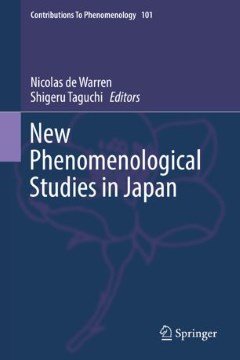Repository | Book | Chapter

(2019) New phenomenological studies in Japan, Dordrecht, Springer.
In this essay, I develop Husserl's view of the relation between sense experience and empirical knowledge by outlining the idea of Husserlian expressivism. I begin the essay by taking a look at the relevant problem on empirical knowledge in the literature. The point is that the content of experience is of the propositional form if experience should have justificatory significance. Husserl emphasizes the epistemological significance of the perceptual presence of objects; nevertheless, he sees perceptual sense as nonpropositional. How can we understand Husserl's thought? I argue that Husserl's conception of expression in Ideas I can give us a clue. Interpreting this conception as saying that expression is not representational medium, but the logical form of the content of experience, I argue that we can ascribe the significance to experience as such, which is only made explicit by expression: propositional form is the expressive form of the implicit experiential content. This interpretation also makes a Husserlian conception of reason possible in which perceptual experience as such can have its rationality. Characterizing sense experience as a non-discursive form of reason, I attempt to describe this conception as an explication of holistically conducted inquiry of empirical knowledge.
Publication details
DOI: 10.1007/978-3-030-11893-8_7
Full citation:
Sato, S. (2019)., Husserl on experience, expression, and reason, in N. De Warren & S. Taguchi (eds.), New phenomenological studies in Japan, Dordrecht, Springer, pp. 83-94.
This document is unfortunately not available for download at the moment.



